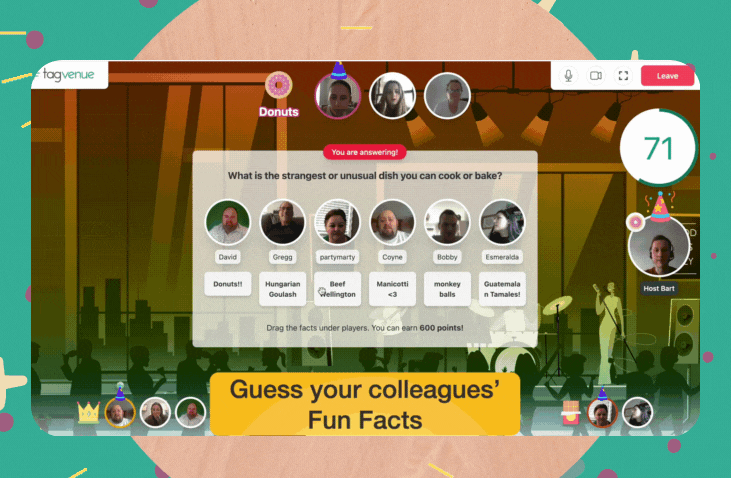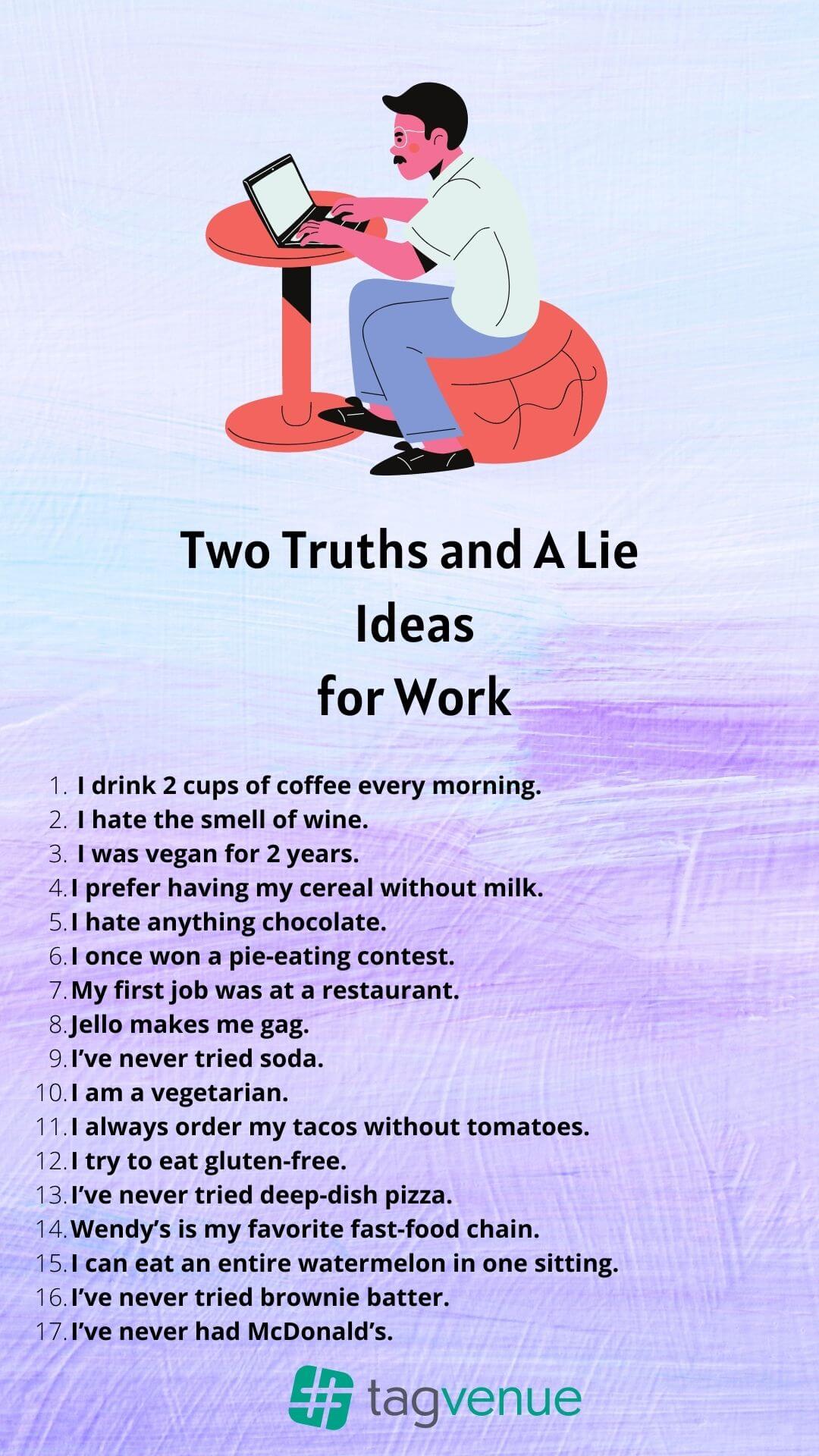
18 Ideas and Activities to Build Trust within a Team
Trust is the basis for an efficient and positive work culture. Employee motivation, productivity, energy and so much more, is built on trust. If there is no trust in your remote team, it will be much more difficult to successfully collaborate with your colleagues and achieve your goals.
Unfortunately, trust is on the decline everywhere we turn. In 2016, PwC conducted a CEO survey which showed that 55% of CEOs think that a lack of trust in their companies was a threat to their growth, but, at the same time, most of them were doing very little to reverse this trend. The main reason for this was claimed to be their lack of knowledge about the topic and the fact that they simply weren’t sure where to start. If you are seeking to instil a sense of trust among your team, you should not repeat their mistakes. Instead, you should understand the importance of trust and learn the strategies that can help you build trust among your teammates.
According to the Edelman ‘Trust Barometer’, one in three employees don’t trust their employer. The issue becomes even more complicated with teams that are geographically dispersed. However, to have a successful remote team, it’s crucial to build a positive and trustworthy environment for each team member to succeed. In this article, you will have a chance to read about the value of trust in the workplace, its importance for the success of your business and discover ways that can help you build trust in your remote team.
What is trust actually?
What exactly does the term ‘trust’ stand for? There is no one definition of trust, but when we refer to it, we mainly mean a few things: a sense of security and confidence, as well as being treated fairly, with respect.
Types of workplace trust:
There are two types of trust in the workplace: practical trust and emotional trust. Practical trust can be earned by showing up on time, getting work done, meeting deadlines and proving yourself to be reliable. It’s important to mention that this type of trust is the most fundamental and basic. If you don’t possess it, your team is in big trouble, and it will result in a lack of communication, a lack of accountability, and micromanaging.
Emotional trust comes down to many things as well: feeling respected, generous listening, networking and building mutual respect. The biggest (and most satisfying) sign of emotional trust in the workplace is when people believe that you’re on their side. Successful leaders display higher levels of emotional trust, so if you’re a manager of some sort, you should definitely consider working on this skill.
Trust is something that you can nurture, encourage intentionally, and, most importantly, increase. So no more excuses against creating a positive and trustworthy environment in your organisation!
Why is building trust in the workplace so important?

If you’re still wondering why you should care about trust in your workplace, let us resolve any of your doubts! Below you will find a bunch of reasons why you, as a leader (but also as an employee – it’s a team effort after all), should care about building trust in your workplace.
- Trust improves teamwork and collaboration. A large percentage of employees are still working from home, which is one reason why communication between coworkers may suffer. Make sure there is open and honest communication in your team! Don’t forget to frequently communicate the company’s core values and goals to your employees.
- Trust improves efficiency, engagement and productivity. According to Gallup’s workplace research, ‘if employees feel they can’t trust the people running their companies, then more than productivity will suffer.’ In fact, 96% of engaged employees said they trust their management, while only 46% of disengaged employees feel the same.
- Trust improves decision-making. Trust can’t work only one way. It’s important for employees to have trust in their superiors and leaders, and for managers to trust their teammates. When such synergy occurs, leaders are more likely to give their employees more responsibilities and empower them to make serious decisions, and employees will have the confidence to make them.
- Trust decreases stress and burnout in the workplace. According to a 2017 scaled US study, people at high-trust companies reported 74% less stress and 40% less burnout. These two things may have a negative impact on the overall performance, including productivity and collaboration with others. To minimise both stress and burnout, there is one good solution: trust! Communicate with your employees, listen carefully and be vulnerable – these few things will definitely help you to build trust in your team.
- Trust increases employee loyalty and retention. Employee burnout is very often followed by employee turnover. In fact, Accenture research shows that ‘burnt-out employees are 2.5 times more likely to leave their current employer.’ It comes as no surprise that a toxic work environment, in which trust cannot flourish, could increase anxiety and fear among coworkers.
- Trust improves innovation and creativity. When there is trust and open communication in the team, you will be surprised how much it boosts innovation and builds a creative environment. Research shows that employees who trust their leaders are 23% more likely to offer more ideas and solutions.
Need more convincing? Well, let’s end on a strong note: trust within a company translates into better financial performance. Trust is a crucial economic lever.
7 ways to build trust in a remote team
There are simple ways that will help you build trust at your company and win the respect and trust of your employees. Employees’ trust in their managers influences their perception of the workplace as well as their performance.
1. Get to know each other (virtually)

Everyone should take every opportunity to get to know their coworkers and build meaningful relationships. Any new hires should be immediately introduced to the rest of the team: send a welcome message in the company’s communication channel or give them a shout-out during team meetings and encourage the new employee to say a few words about themselves.
When working remotely, it is normal to miss the social activity that comes with the physical workplace. To minimise this, you should frequently create socialising opportunities for your team members. Having short chit-chats at the beginning of video calls, messaging platforms, and online coffee breaks are a great way to get to know one another.
Organising team-building activities for your remote team, whether virtual or in real life, could also increase the feeling of camaraderie and the level of trust in your team. We encourage you to check out our Virtual Marketplace to find fun, unusual team building games and activities.
There is no way people will be able to trust one another if they don’t know each other. Cultivating healthy relationships among coworkers is vital for a healthy and positive work environment.
2. Be honest and supportive
Tell the truth – it’s as simple as that. Honesty seems incredibly obvious but it is harder to put into practice than you may think.
Have you ever misled your colleagues about sending an email that you totally forgot about? Once your lies are uncovered, your credibility will decrease and all of the trust that you have been building will disappear within a second. It’s always worth admitting any roadblocks you may encounter or if you’ve forgotten to do something. Your honesty will be much more appreciated than pretending to know all and do it all.
Being honest is not only about pointing out mistakes or admitting them. A good leader should also not be afraid to honestly acknowledge their employees’ excellence. Neuroscience shows that recognition has a big effect on trust and it’s the greatest ‘when it occurs immediately after a goal has been met, when it comes from peers, and when it’s tangible, unexpected, personal, and public.’
3. Be vulnerable
If you don’t know the answer to something or you simply don’t remember the solution, speak up! It can be an amazing opportunity for you to learn and grow. In fact, leaders in high-trust companies ask their colleagues for help instead of only telling them what to do. Asking for help is a tangible demonstration of the trust you have in your coworkers’ competencies and can actually build your credibility.
You’d be surprised how much employees appreciate their leaders admitting to not knowing something or admitting their mistakes. It shows their human side and, let’s be honest, we often forget CEOs or any other company leaders are human as well.
4. Communicate effectively

Communication is key. Always. Regular communication drives accountability and motivation; just be aware, at the same time, that miscommunication can only damage trust. Try your best to always communicate in such a way that there will be no room for misinterpretation. If you have any doubts during a conversation, never be afraid to ask questions for clarity.
Don’t be the only person who talks. Listen carefully to your employee’s thoughts, ideas and feedback. As a leader, be as interested in understanding others as you are in being understood. At the same time, make sure that you are not just listening to the leadership team but also keep lines of communication open to every person at your company.
Transparent communication should be on the top of every leader’s priority list. Keep everyone in the loop by providing easy access to company information: success stories, work schedules, work progress, and task statuses, to name a few.
5. Be consistent
Keep your word. If you make a promise to do something, follow through on it. Have you ever promised someone that you will send an email or have a look at a report and then totally forgot to do it? Well, if the answer is yes… DON’T do it anymore! Being unreliable will ruin your credibility and can potentially ruin your reputation, not to mention erode the trust you have worked so hard to build.
Being inconsistent and not keeping your word is a no-go when you’re trying to build trust in the team. Aligning your words and actions is crucial for building trust in the workplace and, eventually, for the company’s success. We often find employees say that their leaders’ words and actions have the biggest impact on their work as well as their perception of the company. It’s actually simple Maths: if there is a disconnect between a leaders’ words and actions, it is likely that the employees will become less engaged and committed to the company.
6. Avoid micromanaging
If you think breathing down your employees’ neck will motivate them, let us be brutally honest: you’ve never been more wrong. Instead of energised, they are likely to feel insecure and not trusted.
Instead of worrying that your employees may not be sitting down in front of their computers for eight hours straight, give your employees some freedom. Everyone needs to take small breaks, stand up and stretch or prepare themselves a snack. At the end of the day, it’s all about getting the work done! We have prepared an article on Managing Remote Teams, where you will find all the tips and tricks that will help you manage your remote employees more efficiently.
Giving your employees freedom shows them that you not only believe in them but, more importantly, that you trust they will do their work well.
7. Give trust from the very first day
It’s not fair for any leader to expect their employees to trust them without reciprocation. If you want your employees to trust you, do the same! Remember that creating a culture of trust starts from the employee’s first day.
You can show your employees that you trust them by, for example, by encouraging them and providing opportunities for professional development, or asking them for opinions and feedback on important projects.
This type of approach can really help your employees flourish in their roles. By creating positive experiences for your employees from the very beginning, you will be able to build a happy, motivated and, most importantly, trusting team.
Some common mistakes that crush trust in the workplace include: avoiding conflict, breaking promises, focusing on compliance, failing to communicate and assuming trust, so make sure that you avoid such behaviours in your organisation.
11 Team Trust Building Activities

Trust is a crucial factor contributing to your company’s overall health and success.According to the Harvard Business Review, employees working in high-trust environments tend to outperform those with low levels of trust. If trust is high, employees are more likely to collaborate with their peers and stay with a company for longer. Employee engagement and morale are directly impacted by trust in an organisation. How employees are managed and treated can result in either high or poor team performance. You can read more about how to effectively manage your remote team here.
Fortunately, building trust is not as hard as you may think, though it is directly linked to your company culture. Many team trust-building activities can help you develop this necessary sense of trust within your team. So whether it’s a quick trivia or an elaborate work anniversary, building trust in dispersed teams can be easier if you include team-building activities.
Thankfully, you can skip the legwork as we’ve compiled a list of the best trust-building activities for you!
Team Trivia (Virtual)
Price: from £16/$22 pp

It’s Trivia Time! Team-specific questions can help teams get to know their colleagues better and relax after a hectic workday. Trivias are a great trust-building activity as they encourage communication among team members. A hosted trivia event like Team Quest is an effective and entertaining way to get everyone involved online. Trivia can be used as icebreakers, for onboarding new joiners, or as a warm-up before your Friday town hall meeting! To plan a company-themed trivia, make sure that your event manager can customise the trivia questions according to your team’s needs. Ask employees to take a survey so that you can plan a tailored event!
Trust Walk
Price: Free
Would you be terrified if your colleague guided you while you’re blindfolded or would you trust them? Tough question, right? Colleagues who trust each other are far more productive and happier at work than those who don’t. As the name suggests, a Trust Walk is an activity in which one volunteer is blindfolded and the other members have to guide them on a set path. Teams are split into small groups of 2 to 3 people and the one who makes it to the finishing line first wins the game! The trust walk is an excellent brief outdoor activity, ideally in a park without any traffic.You could even try it out in your office space for a quick version!
Two truths and a lie
Price: Free
The game Two Truths and a Lie is usually played with a small group of people, which makes it an ideal team trust-building activity for teams! All you have to do is play in smaller groups in which one person gives three statements about themselves to the rest of the team. The trick is that one of the three statements is a lie and team members have to find out which one it is! It’s an easy-to-host activity that can help employees talk about their lives and experiences. If you are looking for a hosted virtual icebreaker, you might consider this 30-minute icebreaker exercise which is fully hosted and will surely energise your team!
Here is a free list of two truths and a lie to help you organise your first exercise!

Cooking Class (Virtual)
Price: £12.5/$17 pp – from £29/$41 pp

People get together over food to comfort, celebrate, learn about cultures, and stay connected. When a team cooks together, coworkers can get to know one another. As a result, they may work together more effectively to recognise one other’s strengths and develop social relationships. This makes it easier for employees to collaborate in the future. Additionally, members of international teams come from a variety of cultural backgrounds. Employees will learn a lot about different cultures through coooking thus making the workplace more inclusive and promoting trust. Plus, at the end of the class, you’ll all get to enjoy some delicious Mexican or Italian food together!
Here are our top picks:
Polish Dumplings Virtual Cooking Class– For the love of delicious comfort food.
Sichuan Style Cooking Class – For those who crave something spicy in winter.
Italian Virtual Cooking Class – For some extra parmesan cheese on your plate.
Social Chat
Price: Free
Most remote teams use a communication tool for daily business, however, trust is often built outside of business interaction. Random exchanges between colleagues make it easier for people to talk about things other than work, such as movies, TV shows, life updates, and so on. By encouraging teams to set up their individual channels on platforms such as Slack, new joiners can quickly adapt to the team and share things about themselves that they wouldn’t otherwise have shared during work meetings! If you think that this might encourage employees to be less productive, you’re wrong, office banter is essential for employees to feel like they’re part of the team and to trust their peers.
Murder Mystery (Online)
Price: £5/$7 pp – £700/$950
Solving a murder together is one sure-fire way to uplift your employees and make them feel better. While working on a case together, the players need to share their findings and thoughts, otherwise there’s no way they could win the game! Murder mystery games are similar to virtual escape room games as they aim at engaging teams, fostering relationships while having fun, and building trust within your team. Hosting a murder mystery is an effective means to reengage employees and strengthen bonds as they, solve riddles, examine clues and overcome challenges together.
Trust Building Virtual Workshops
Price: £1383/$1699
Workshops can sometimes be boring, but if done right, they can empower shy employees and make them feel better and more secure around their peers. Diversity workshops can help employees identify the issues faced by minorities and help make the workplace more inclusive and equal for everyone. Companies need to include training and workshops that assist employees in making the workplace happier and healthier for everyone. Virtual workshops are also a great way for employees to come forward and express their concerns, which can help managers and leaders to adopt the best practices for their team.
Similar Workshops: LGBTQ+ Allyship Training
Show and Tell
Price: Free
The foundation of great teamwork is trust, which is why our favourite trust-building activity costs nothing yet it is one of the most effective exercises in building a cohesive team. Show and Tell is all about sharing something that matters to you with the rest of your team. It can be anything from childhood stories to your latest achievement or hobby. It helps your team discover new things about their peers which makes it easier for them to build relationships within the team. Whether you’re an experienced or a new team, a Show and Tell activity will certainly help in fostering team unity and trust.
All you have to do is set a date, and send those calendar invites to make sure everyone is aware of the event. We recommend doing this in smaller groups to facilitate interaction. You can even remind your team members about the event during daily meetings. It’s important not to force anyone to attend the Show and Tell but rather to encourage them to join in the fun!
Virtual Escape Room Game

You’ve probably heard it all before, virtual escape room games help energise employees and foster team collaboration. And it’s true! HR managers and leaders have realised that these trust-building activities positively impact performance and workplace morale, which is why many companies have adopted these activities. Virtual escape rooms allow employees to recognise each other’s skills, strengths, interests, and discover their personalities. By working towards the same goal which is escaping the room, teams learn how to trust their peers to win the game.
Virtual Scavenger Hunt
Price: £16/$22 pp- £27/$33 pp

Virtual Scavenger Hunts are often used as icebreakers as they are easy to host and can be carried out virtually. Your teams might even enjoy some beautiful views of Italy while scavenging virtually! A scavenger hunt is an excellent activity for dispersed teams to connect while exploring a location. It doesn’t have to cost a thing and you may even come up with your own scavenger hunt list and ask your colleagues to look around their homes for the listed items. By discovering fun facts about each other, team members will be more open to trusting their peers and feel happier at work! It’s a lot easier to trust your peers when you’re all having fun together!
Here’s a free scavenger hunt list to get you started:
If you’re considering a hosted virtual scavenger hunt, take a look at our top 15 scavenger hunt ideas which will help you build trust and foster employee happiness.
Five Minute Tutor
Price: Free
Trust building doesn’t require you to spend a lot of money on activities. Sometimes all you need is five minutes to build trust within a team. Ask your teammates to prepare a short lecture of five minutes on any topic that they enjoy, like their favourite hobby, TV show, or something they’re passionate about, and share it with the rest of the team on a rotating basis. Such short lectures not only empower employees but also give them the chance to others to share their interests, and connect and communicate with their peers which is the essence of trust.
Conclusion
Managing a remote team and learning how to build trust remotely is no mean feat for managers. But you need to know how to build trust in the workplace if you want your company to progress and succeed. If you manage to establish a trustworthy environment, you will be able to build a team that is even happier and more productive than one that meets in the office every day.
You have to also remember that building trust doesn’t happen overnight. It takes time and effort, from both the employees and employers. As former IBM chairman and CEO Thomas Watson once said, ‘the toughest thing about the power of trust is that it’s very difficult to build and very easy to destroy’. Bring into existence all of the steps mentioned above, nurture them in your organisation and work to bring these changes to life!
FAQs
What is trust in the workplace?
Trust in the workplace means a culture of honesty, psychological safety and mutual respect. If there is trust in the company, employees will be more engaged in their work, will feel empowered and will be prouder of the place they work in.
How do you build trust virtually?
There are many ways to build trust, even in a remote setting. First and foremost, you should create opportunities for your employees to get to know one another as they don’t have a chance to chat in the common area over a cup of coffee or stop by each other’s desks to have a quick catch up. Some other important aspects of building trust are: open communication, being honest, vulnerable and supportive, as well as being consistent. You should also not forget about giving them freedom and showing that you trust them from the get-go.
How to build healthy relationships among coworkers?
Healthy relationships in the workplace are crucial for any organisation. They contribute to successful cooperation within teams, as well as affect employees’ general well-being and satisfaction. You have to keep in mind that building relationships in a remote setting can be more challenging compared to a physical workplace, so you really need to focus on being intentional. You should check in with your colleagues frequently, whether via a message or a quick chat at the beginning of your daily meeting. Take online coffee breaks together and have a catch-up. To really break the ice among the team members, check out virtual team building activities.
Do virtual team building activities help to build trust in remote teams?
At the end of the day, you have to remember that there will be no trust in your team if coworkers don’t know each other, which is a common problem in a remote setting. That’s where virtual team building activities come in handy. Such activities help strengthen relationships among coworkers, improve their communication and cooperation skills, and help them be more open with one another – we strongly recommend activities such as The Team Quest or Around the World. All of these types of virtual games are a firm basis for building trust in a relaxed and fun setting.
What are team trust-building activities?
Team trust-building activities are a lot like team-building exercises. Their main goal is to bring team members together so that they interact, collaborate, and communicate with one another. Team trust-building activities can be anything from a daily chat with colleagues to hosted activities where teams gather together and work towards the same goal. These exercises help strengthen relationships within teams and encourage employees to communicate openly with one another which is crucial for trust building.
Why is trust important in company culture?
Studies have shown that companies with lower trust tend to perform badly compared to those with high trust. Employees are generally less stressed, have more energy, and are much more engaged when working at a high-trust company. Companies that encourage trust within teams are more likely to benefit from new ideas from their employees and have higher retention rates.

